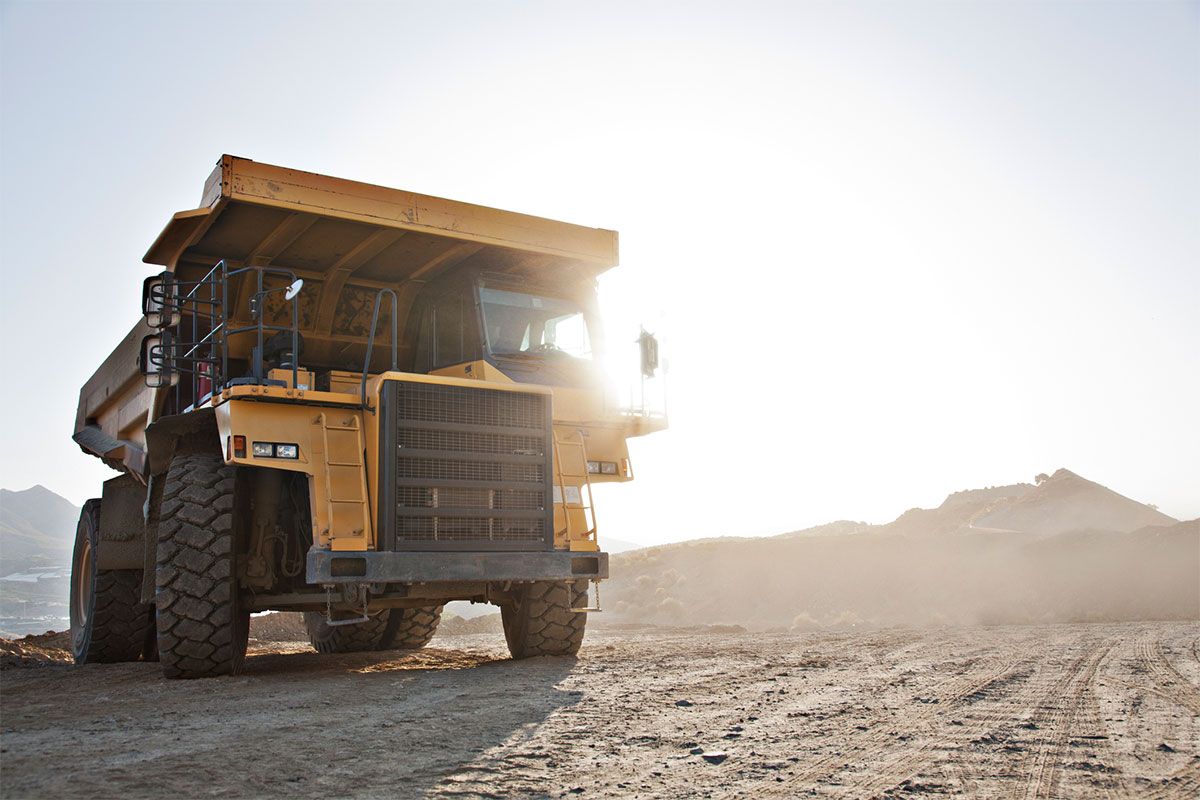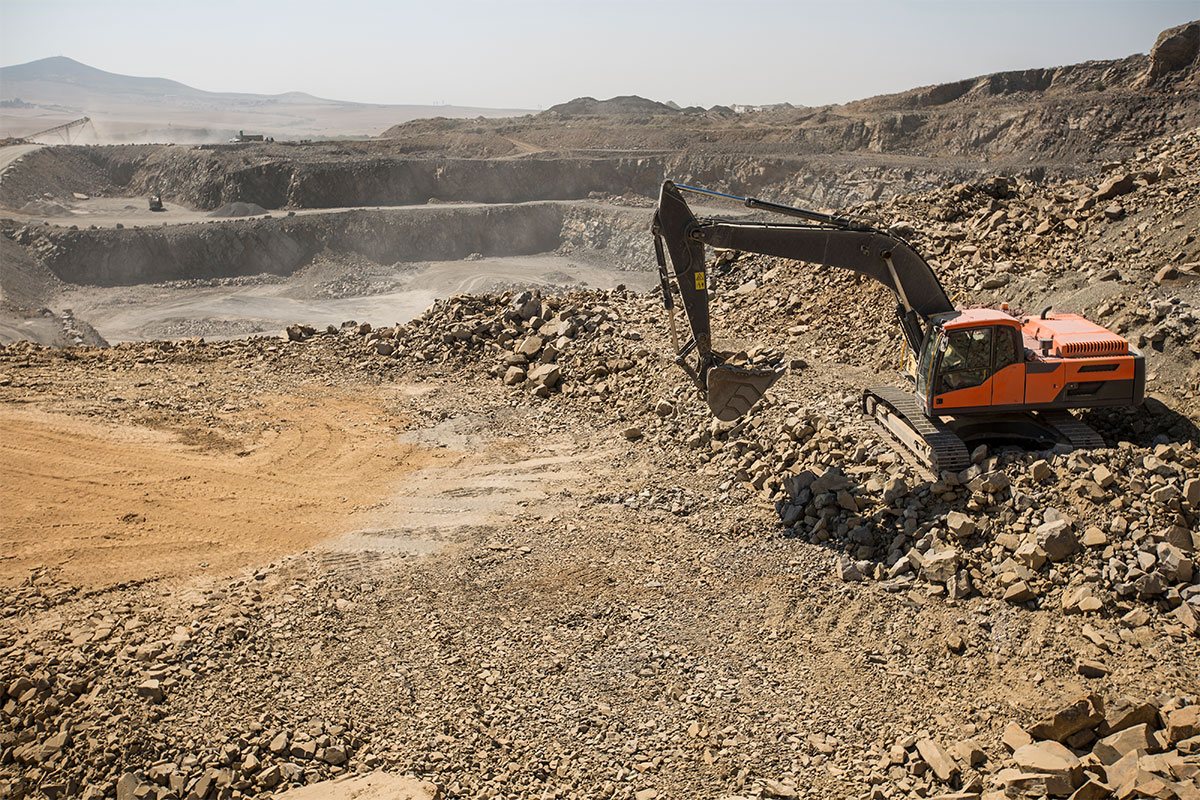5 Strong Stocks to Buy for an American Infrastructure Boom
If the federal government can pass something as rancorous and partisan as the Republicans’ tax law, then a bill that can garner bipartisan support and is (almost) equally beneficial for every American citizen should be easy.


Profit and prosper with the best of Kiplinger's advice on investing, taxes, retirement, personal finance and much more. Delivered daily. Enter your email in the box and click Sign Me Up.
You are now subscribed
Your newsletter sign-up was successful
Want to add more newsletters?

Delivered daily
Kiplinger Today
Profit and prosper with the best of Kiplinger's advice on investing, taxes, retirement, personal finance and much more delivered daily. Smart money moves start here.

Sent five days a week
Kiplinger A Step Ahead
Get practical help to make better financial decisions in your everyday life, from spending to savings on top deals.

Delivered daily
Kiplinger Closing Bell
Get today's biggest financial and investing headlines delivered to your inbox every day the U.S. stock market is open.

Sent twice a week
Kiplinger Adviser Intel
Financial pros across the country share best practices and fresh tactics to preserve and grow your wealth.

Delivered weekly
Kiplinger Tax Tips
Trim your federal and state tax bills with practical tax-planning and tax-cutting strategies.

Sent twice a week
Kiplinger Retirement Tips
Your twice-a-week guide to planning and enjoying a financially secure and richly rewarding retirement

Sent bimonthly.
Kiplinger Adviser Angle
Insights for advisers, wealth managers and other financial professionals.

Sent twice a week
Kiplinger Investing Weekly
Your twice-a-week roundup of promising stocks, funds, companies and industries you should consider, ones you should avoid, and why.

Sent weekly for six weeks
Kiplinger Invest for Retirement
Your step-by-step six-part series on how to invest for retirement, from devising a successful strategy to exactly which investments to choose.
If the federal government can pass something as rancorous and partisan as the Republicans’ tax law, then a bill that can garner bipartisan support and is (almost) equally beneficial for every American citizen should be easy. That “something” is infrastructure, and the Trump administration has signaled an ambitious plan to rebuild America’s aging bridges, roads and other parts of our decrepit infrastructure.
The thinking here follows the advice given by Deep Throat to Washington Post reporters Bob Woodward and Carl Bernstein: Follow the money. At present, expectations are the administration will try to pass a deal that includes $200 billion in new spending, as well as various incentives that could push total spending to about $1 trillion over the next 10 years.
Companies that benefit from infrastructure spending have had slim pickings over the past decade. For most of the past 10 years, Congress has spent only what was necessary, with states sometimes having to pitch in and raise gas taxes.
However, these five companies should look like attractive stocks to buy if the sluices open for infrastructure spending in 2018 – a likely outcome.
Data is as of Jan. 17, 2017. Dividend yields are calculated by annualizing the most recent quarterly payout and dividing by the share price. Companies are listed alphabetically. Click on ticker-symbol links in each slide for current share prices and more.

Aecom
- Market value: $6.1 billion
- Dividend yield: N/A
- Aecom (ACM, $38.68) is a global engineering and construction company with an impressive track record for generating free cash flow — $1.9 billion over the last three years — in tepid environments.
Accordingly, with as much as $1 trillion in new spending, Aecom's cash flow should grow.
Further, Aecom has demonstrated its commitment to returning capital to investors. In September, Aecom announced a $1 billion share buyback – an impressive amount given that the company’s market capitalization is just better than $6 billion.
More cash and fewer shares outstanding amid more spending by the states and federal government offer fertile ground for appreciation of ACM. Analysts at Bank of America/Merrill Lynch concur, saying Aecom should be “a strong beneficiary of higher US infrastructure and defense spending.”

Caterpillar
- Market value: $100.3 billion
- Dividend yield: 1.8%
- Caterpillar (CAT, $168.50) is a heavy equipment manufacturer, but even before the “I” word entered everyday political parlance, things were starting to look brighter for CAT. Thanks to a synchronized global recovery, Caterpillar expects to see growth in demand for parts in its mining, oil/gas and rail businesses, not to mention higher mining truck shipments and increased construction equipment sales.
Given long lead times, few analysts (or even CAT itself) expect U.S. infrastructure spending to have much of an impact on the company during 2018. However, up to $1 trillion in new spending offers an opportunity no other heavy equipment manufacturer — not Deere (DE) or Cummins (CMI) — can capitalize on the way CAT can with its diversified business model covering transportation, construction and natural resources.
Caterpillar’s stock has been on a tear since the start of 2016, up nearly 170% in that time, so investors may want to look for a pullback before buying shares. A 1.8% dividend yield makes the wait for infrastructure spending to kick in a little more palatable, though given the company’s past couple years, any increases to that payout may be minimal.

Martin Marietta Materials and Vulcan Materials
- MMM Market value: $14.3 billion
- MMM dividend yield: 0.8%
- VMC market value: $17.8 billion
- VMC dividend yield: 0.8%
Crushed stone, sand and gravel as well as aggregates used in concrete represent the foundation (literally) of new or rehabilitated infrastructure. Accordingly, a rising tide should lift all boats, but in particular, Martin Marietta Materials (MLM, $227.04) and Vulcan Materials (VMC, $134.58) are positioned to win.
The geographic diversity that these companies have been able to achieve in their operations — Vulcan in 20 states and Washington, D.C.; Martin Marietta in 26 — will give them pricing advantages because shipping rocks is expensive, and shortening distances saves money. Remember: Stone and sand represent the ultimate commodities, so pricing is tight. Any cost advantage is significant in terms of what it can pull to the bottom line.
Analysts at Bank of America/Merrill Lynch have sounded off on Vulcan, saying they expect an uptick in construction activity to raise the company’s sales and improve its profitability. However, Martin Marietta does have a valuation edge, trading at 26 times analysts’ estimates for next year’s earnings, versus VMC’s 32.

Nucor
- Market value: $22.0 billion
- Dividend yield: 2.2%
- Nucor (NUE, $69.26) is the United States’ largest steel producer. Its mini-mills enable it to produce steel at a lower cost than larger, integrated mills.
Nucor is likely to be among the biggest beneficiaries of higher infrastructure spending. Given the political rancor over perceived trade inequities in general – and in the steel industry in particular where a Commerce Department investigation may result in steel import tariffs – Nucor has the opportunity to provide much of the steel needed to build bridges pipelines, tunnels and railroads.
This upside from infrastructure spending joins what analysts at BMO Capital Markets see as organic improvement in the steel industry from increased demand net of any new infrastructure spending. Moreover, Nucor is a Dividend Aristocrat that has improved its annual payout for 44 consecutive years
Profit and prosper with the best of Kiplinger's advice on investing, taxes, retirement, personal finance and much more. Delivered daily. Enter your email in the box and click Sign Me Up.

Website: gorillatrades.com
LinkedIn: Gorilla Trades
Phone: (866) 222-6639
Ken Berman has been buying and selling stocks since he was a teenager and met with early success trading then-fledgling biotech stocks like Amgen, Biogen and Immunex. He later became a broker and worked for two wire houses, where he developed a proprietary system for buying and selling equities. In 1999, Mr. Berman formalized his method under the Gorilla Trades name and now has subscribers in the U.S. and 55 other countries around the world.
-
 Nasdaq Leads a Rocky Risk-On Rally: Stock Market Today
Nasdaq Leads a Rocky Risk-On Rally: Stock Market TodayAnother worrying bout of late-session weakness couldn't take down the main equity indexes on Wednesday.
-
 Quiz: Do You Know How to Avoid the "Medigap Trap?"
Quiz: Do You Know How to Avoid the "Medigap Trap?"Quiz Test your basic knowledge of the "Medigap Trap" in our quick quiz.
-
 5 Top Tax-Efficient Mutual Funds for Smarter Investing
5 Top Tax-Efficient Mutual Funds for Smarter InvestingMutual funds are many things, but "tax-friendly" usually isn't one of them. These are the exceptions.
-
 The New Fed Chair Was Announced: What You Need to Know
The New Fed Chair Was Announced: What You Need to KnowPresident Donald Trump announced Kevin Warsh as his selection for the next chair of the Federal Reserve, who will replace Jerome Powell.
-
 January Fed Meeting: Updates and Commentary
January Fed Meeting: Updates and CommentaryThe January Fed meeting marked the first central bank gathering of 2026, with Fed Chair Powell & Co. voting to keep interest rates unchanged.
-
 Trump Reshapes Foreign Policy
Trump Reshapes Foreign PolicyThe Kiplinger Letter The President starts the new year by putting allies and adversaries on notice.
-
 Congress Set for Busy Winter
Congress Set for Busy WinterThe Kiplinger Letter The Letter editors review the bills Congress will decide on this year. The government funding bill is paramount, but other issues vie for lawmakers’ attention.
-
 The December CPI Report Is Out. Here's What It Means for the Fed's Next Move
The December CPI Report Is Out. Here's What It Means for the Fed's Next MoveThe December CPI report came in lighter than expected, but housing costs remain an overhang.
-
 How Worried Should Investors Be About a Jerome Powell Investigation?
How Worried Should Investors Be About a Jerome Powell Investigation?The Justice Department served subpoenas on the Fed about a project to remodel the central bank's historic buildings.
-
 The Kiplinger Letter's 10 Forecasts for 2026
The Kiplinger Letter's 10 Forecasts for 2026The Kiplinger Letter Here are some of the biggest events and trends in economics, politics and tech that will shape the new year.
-
 Special Report: The Future of American Politics
Special Report: The Future of American PoliticsThe Kiplinger Letter Kiplinger assesses the political trends and challenges that will define the next decade.
